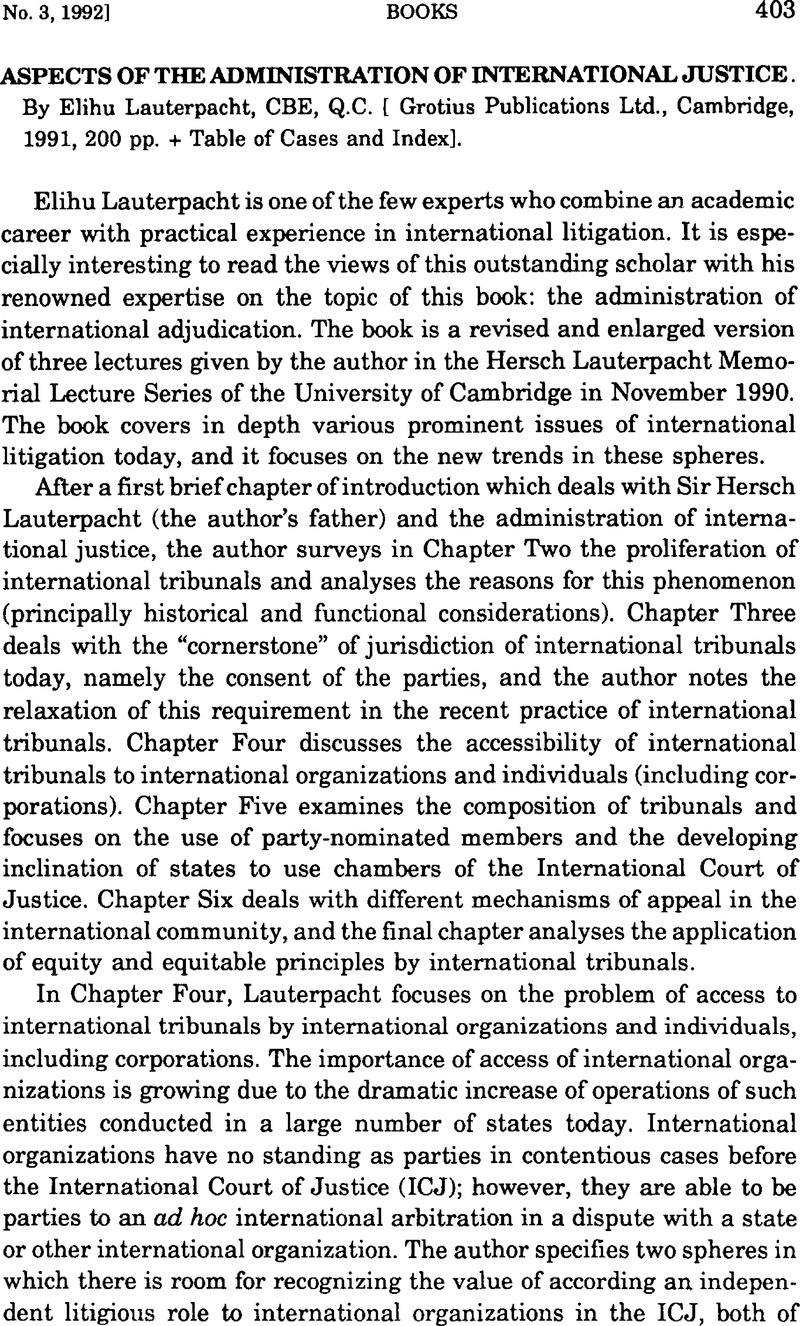No CrossRef data available.
Published online by Cambridge University Press: 16 February 2016

1 E.g., the Judgment of the I.C.J. in Case Concerning the Arbitral Award made by the King of Spain (Honduras v. Nicaragua), 1960 I.C.J. Reports 192.
2 E.g., Article 84 of International Civil Aviation Convention, 1944 provides for appeal to the International Court of Justice from decisions of the ICAO Council: 15 U.N.T.S. 295.
3 Convention on the Settlement of Investment Disputes between States and Nationals of Other States, 1965: 575 U.N.T.S. 159.
4 Ibid., Article 54(1).
5 Article 52 of the ICSID Convention, ibid., provides that either party is allowed to request the annulment of the award for one or more of the following reasons: the tribunal was improperly constituted; it manifestly exceeded its powers; there was corruption on the part of a member of the tribunal; a serious departure from a fundamental rule of procedure occurred; or the award failed to state the reasons upon which it was based.
6 Amco v. Indonesia (Annulment Decision) (1986) 25 Int'l Legal Materials 1441; Kockner v. Cameroon (Annulment Decision) (1986) 11 Yrbk Commercial Arbitration 162.
7 Reisman, W. M., “The Breakdown of the Control Mechanism in ICSID Arbitration” (1989) 4 Duke L. J. 739CrossRefGoogle Scholar; Pirwitz, B., “Annulment of Arbitral Awards Under Article 52 of the Washington Convention on the Settlement of Investment Disputes” (1988) 23 Texas Int'l L. J. 73, at 76Google Scholar; C. Curtis, “Amco v. Indonesia” (1988) 83 Am. J. Int'l L. 106, at 110.
8 Mine v. Guinea (Annulment Decision) (1991) 5 ICSID Review 95: the committee dismissed the request for annulment of that part of the case which held that Guinea had been in breach of contract; however, it granted the request for annulment of the ruling of the arbitral tribunal with respect to damages.
9 Amco v. Indonesia (Resubmitted Case) (1988) 27 Int'l Legal Materials 1281, at 1294: according to this decision the reasons behind the decision of the ad hoc committee are not binding for the new tribunal. Mention should be made that the new tribunal may confirm the rulings of the first tribunal in whole or in part.